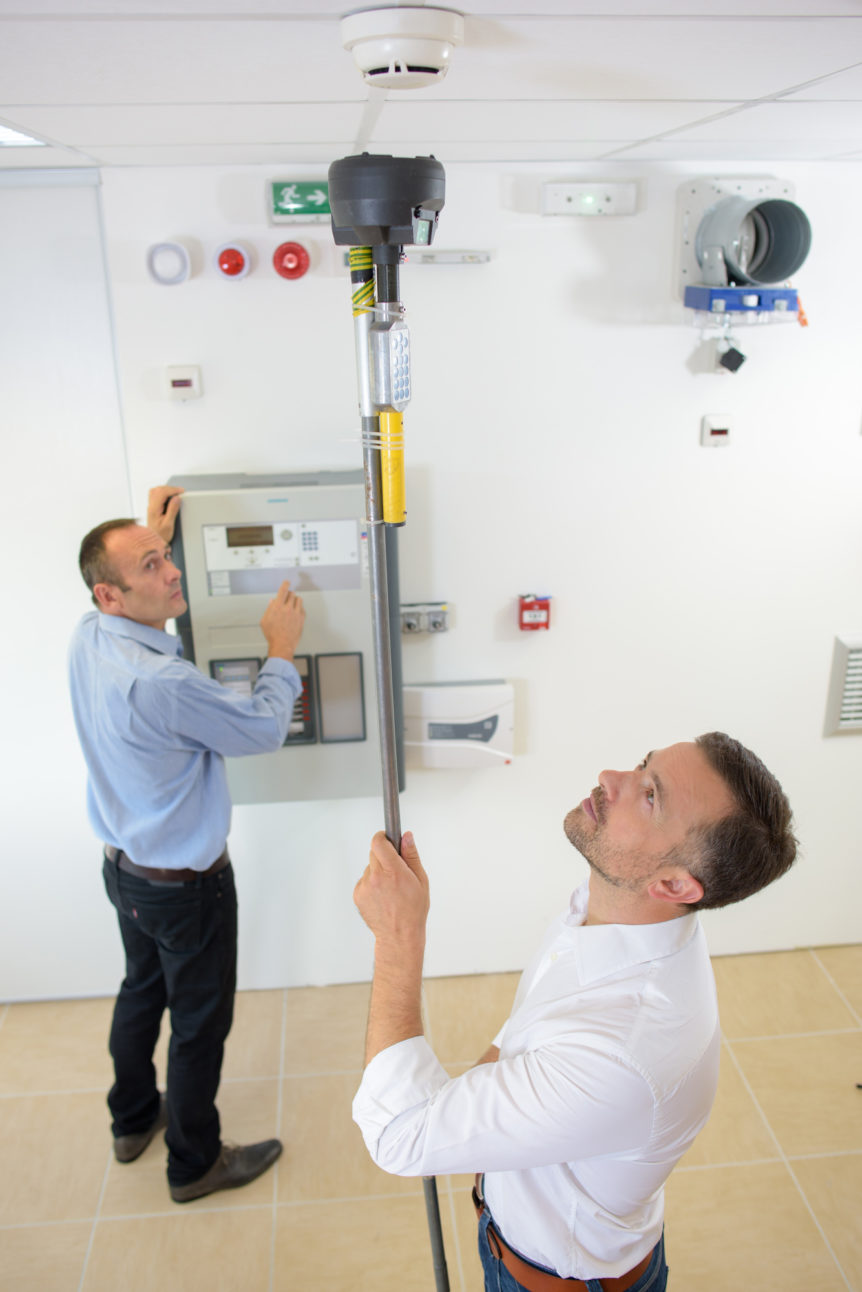You’ve just received word that it’s time for your building’s fire inspection. As careful as you may be about fire protection, it’s common to be nervous about the inspector’s verdict.
In cases like these, it can put your mind at ease to know what to expect. Here’s a glimpse into what fire inspectors do and what your inspection may be like.
What Do Fire Inspectors Do during a Fire Inspection?
Depending on how big your building is and how it’s zoned, a fire inspection can take a few brief minutes or several days. The following are the fire inspector’s priorities during his time at your facility.
Check Fire Control Equipment
The certain number of fire control devices you’re required to have will depend on the location of your building. Such safety instruments include smoke detectors, sprinklers, and fire extinguishers.
The fire inspector will examine each of these devices in your building to make sure all work as expected. Keep in mind that fire extinguishers need occasional refills, so the fire inspector can let you know if it’s now time to replace the fire suppression material inside any of your extinguishers.
Look for Fire Hazards
Ensuring your preparation for a fire is one thing, but assessing your current risk of a fire is another.
The fire inspector will spend crucial time searching for fire hazards like overloaded outlets and exposed wiring.
Review Your Fire Evacuation Plan
Part of your fire safety requirements includes posting a fire evacuation plan that’s clear for everyone to follow. During your fire inspection, the fire inspector will make sure your fire evacuation plans are posted as necessary in the relevant places.
Inspect Flammable Material Storage
If you have certain flammable materials in your building, there are regulations about where and how you must store them.
Your fire inspector may ask about flammable materials. If you’re storing gasoline or other potentially hazardous solutions, the inspector must ensure that such chemical properties are kept in a well-labeled area free of other fire hazards. For any concern over whether or not you’re handling the storage of these materials properly, just ask your inspector.
Examine Fire Exit Signs
Another fire safety requirement is that your fire exits are ready in case of an emergency.
Each exit needs to have an illuminated “exit” sign above it. The inspector will ensure that your exit signs are functioning properly and that these exits aren’t blocked or obstructed.
Look for Other Potential Fire Code Violations
Along with the checklist above, the fire inspector will check for any other fire hazards or fire code violations. This is an important opportunity to make sure you’re following as many safety practices as possible.
Inform You of How to Improve Your Fire Protection
At the end of the inspection, your fire inspector will review his or her findings. If violations have been discovered, you’ll be informed of what you must do to correct them. Your inspector will also set up a follow-up inspection to ensure that you have completed the prescribed repairs.
This is also a good time to find out if there are any other ways to improve your fire preparedness. Some practices may not be required, but they could still help you protect your building. Don’t hesitate to ask your inspector for any such recommendations.
Preparing for Your Fire Inspection
There’s no reason to be nervous about your fire inspection. It’s an opportunity not only to make sure you’re keeping up with your legal responsibilities, but also to find ways to significantly improve your safety as well.
If you’re due for a fire inspection, contact our fire inspectors to schedule your appointment.

